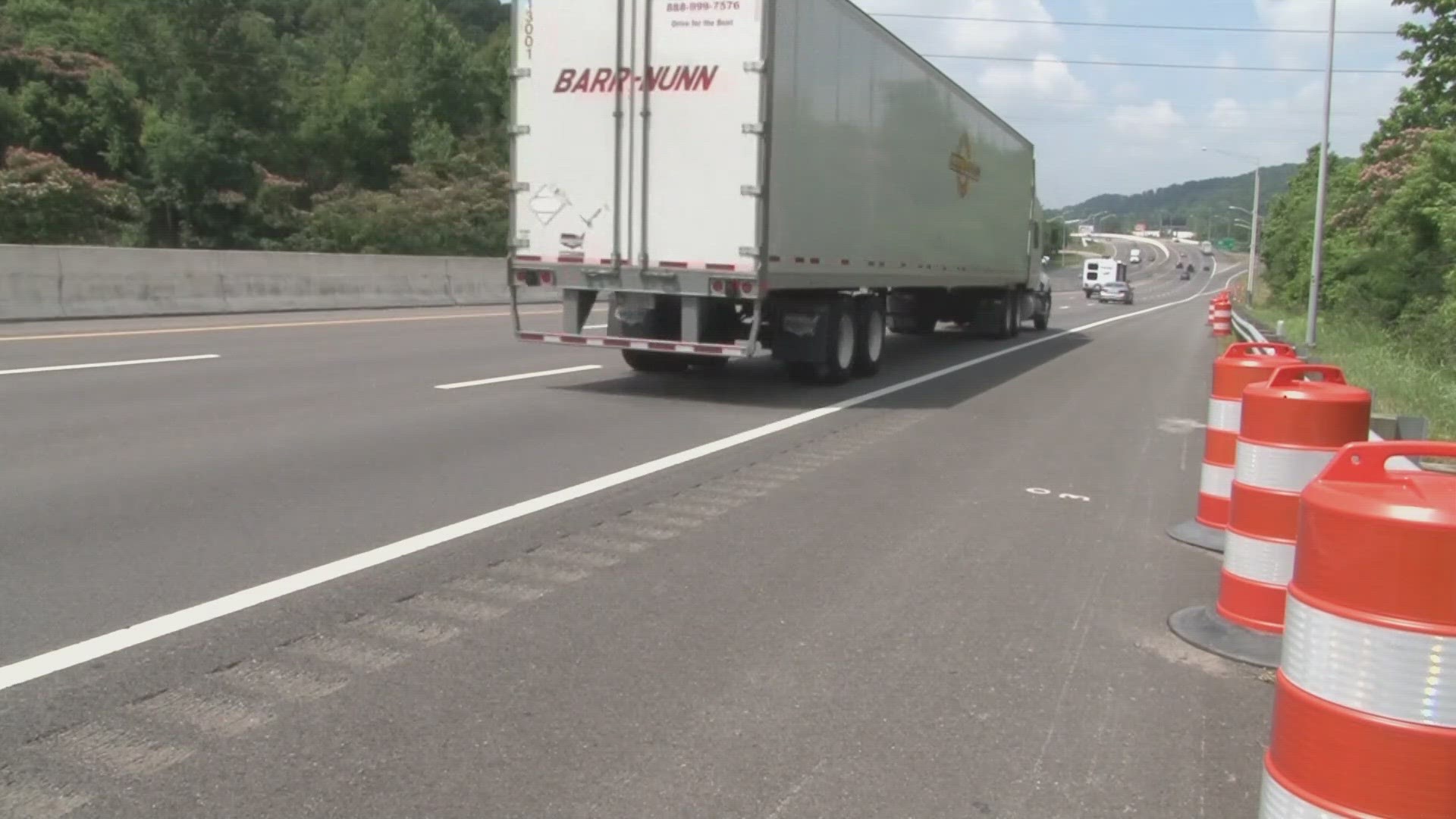KNOXVILLE, Tenn. — The Tennessee Department of Transportation is in a race against time. According to TDOT, the state’s current roadways are not on track to deal with Tennessee’s growing population.
According to population projections from the University of Tennessee’s State Data Center, Tennessee is expected to grow by 1 million people by 2043, 20 years from now. TDOT said with more people on the road, congestion will get worse. As part of its “Build With Us” plan, TDOT claimed that average commute times would increase by 60% and travel times between cities could increase by 1 hour if nothing is changed.
For example, I-40, from downtown to the I-75 split is often congested in the pm peak hour.
"Right now, we don't have the choice but to sit in traffic. We just have to grin and bear it, or maybe we get off the interstate and try to weave through the streets," said Kevin Heaslip, the UT director of the Transportation Center. "We have so many more people coming here. And our roadways weren't necessarily built for those. So the roads are being stressed in ways that we haven't seen before."
TDOT said the state currently has a $26 billion backlog of road projects. In an interview with TDOT commissioner Butch Eley, he said Tennessee’s roads are built on a “pay-as-you-go” system, meaning the state’s highway system doesn’t have debt like other states. However, it also means that the department has fallen behind on its projects.
“We’re one of the few states that does not have any debt on our on our highway system. And so, we kind of pay as you go, and we make sure that we are building as we go,” said Eley. “But at the same time, we know we're falling behind.”
In Knoxville specifically, Heaslip said urban congestion in and around Knoxville has a $1.3 billion backlog of projects. He said solutions are needed to bring in more money to fund state road projects.
In March, the Tennessee legislature passed the Transportation Modernization Act, which would invest $3.3 billion into TDOT to help roads keep pace with expected record population growth. Part of TDOT’s strategy with the legislation is a proposal for choice lanes.
Choice lanes, as TDOT proposed, would be additional lanes that drivers can use to circumvent traffic, like high-occupancy vehicle lanes found in Nashville and Memphis. Drivers would have to pay each time to use the lane. According to Eley, it would be ideal for drivers who need to get to their destination quickly. At the same time, it would help free up congestion on normal lanes.
Heaslip explained how these lanes could potentially benefit drivers. "If you have to get someplace quickly like the airport, or you have to pick up your child at daycare, you can choose to drive in these lanes, which are guaranteed by the state to be a certain higher speed limit, or they're guaranteed not to be congested," he said.
There is a catch: federal law prevents the state from placing a toll on existing interstate lanes. However, tolls can be placed on newly constructed lanes. TDOT, already dealing with its backlog of projects, is instead looking into public-private partnerships (P3) for a solution.
Through these partnerships, a private company will not only construct new choice lanes but also help manage and run them. According to TDOT, it would not only free up more resources for the state, but the money would be invested back into Tennessee’s roads.
"Instead of the state spending $1.3 billion on Interstate 40, a company will come in and do a lot of that work," said Heaslip. "That will allow the state to invest in other places."
According to State Representative Sam McKenzie (D), who voted in favor of the Transportation Modernization Act, other states like Georgia and Texas have adopted a similar system and have seen some success.
"What this law did was to open the pipeline up to for these public-private partnerships," said Representative McKenzie. "And, they're going to come because there's money involved and in Texas and these other places they have been fairly successful."
However, the construction of choice lanes would come with other consequences. Not only would Tennessee drivers have to deal with more construction on their commute, but according to Heaslip, the drivers on those lanes would be the ones footing the bill.
"The users of those toll lanes end up paying for it because the companies wouldn't have a reason to build the road if they didn't have income coming in," said Heaslip.
Right now, TDOT has yet to announce a private partner that will construct choice lanes or where they will be built. TDOT is expected to provide a proposal plan to state legislatures later this December.

